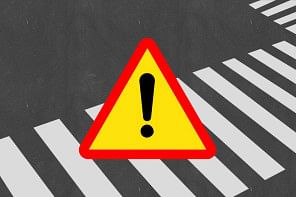Watch out for Covid-19 infections

The latest development regarding Covid-19 infections in Bangladesh should not be taken lightly. According to a report published by this daily, the country has been seeing a surge in infections from the pandemic disease, caused by the highly contagious Sars-CoV-2 virus. The daily infection rate, which was less than one percent on December 20 last year, jumped to 4.53 percent on Thursday—in the span of 15 days. The health directorate reported 21 new active cases in the 24 hours between Wednesday and Thursday mornings. The day before, 16 infections were recorded. Thankfully, there have been no reports of death during this time.
The whole world has been seeing an uptick in Covid infections in recent weeks, especially since the emergence of the JN.1 strain, a descendent of Omicron, the most infectious variant of Sars-CoV-2 known to us, a few months ago. Given its fast-spreading nature, the World Health Organization (WHO) termed JN.1 a "variant of interest." There have been no reports of JN.1 infection in Bangladesh as yet, but local experts believe that it may cross over to the country from India, if it hasn't already.
However, we don't believe there is anything to be alarmed about just yet. WHO has said the overall risk from JN.1 is "low" and the existing vaccines are strong enough to counter its effects. But that doesn't mean we should be complacent and careless. The memory of the havoc the coronavirus disease, which wreaked all across the world in 2020 and 2021, upending our way of life as well as the global economy, is still fresh in our minds. We do not want a repeat of that, especially when Bangladesh is still grappling with the prolonged bout of dengue. If the new Covid surge does go out of control, our already fragile health sector will be even more burdened to provide the critical care more serious Covid patients would require.
In this situation, we believe it wise to err on the side of caution. The relevant authorities must keep a watchful eye on the progress of JN.1 variant and plan ahead to tackle all possible situations. The National Technical Advisory Committee (NTAC) has already advised to enforce hygiene rules such as wearing masks in public and washing hands frequently, and stock adequate amounts of testing kits and other medical equipment at all treatment facilities, which the authorities will do well to follow. Prevention is always better than cure—we hope our health authorities will act proactively rather than reactively this time around.


 For all latest news, follow The Daily Star's Google News channel.
For all latest news, follow The Daily Star's Google News channel. 









Comments